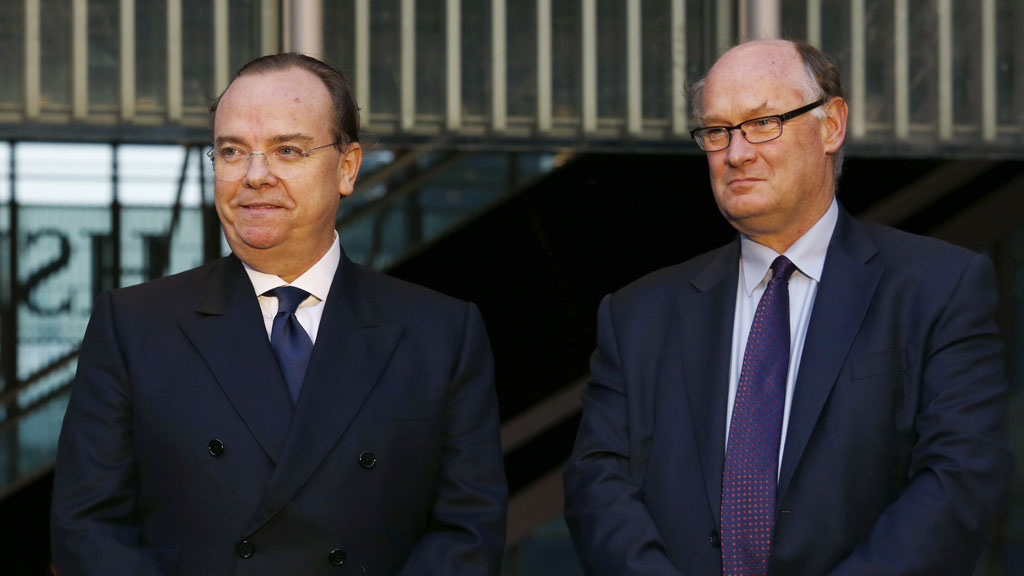HSBC bosses face tough questions at Westminster
It has been two and a half weeks since details first emerged about the HSBC Swiss tax scandal.
Now its two bosses will be publicly questioned over the affair for the first time. Stuart Gulliver, the bank’s chief executive, wasn’t due to appear but his presence has been requested at the Treasury select committee alongside Douglas Flint, the group’s executive chairman.
On the face of it, Gulliver should face an easier ride than his chairman. He wasn’t the boss during the Swiss tax affair, or when the bank was busting US sanctions and laundering Mexican drug money.
During those years Gulliver was running the bank’s markets operations in Hong Kong and by all accounts did a very good job.
In fact so good, that Gulliver told journalists on a conference call on Monday that he became the region’s top dog and its biggest earner.
But, like a lot of very wealthy people he didn’t want anyone to know how much he was worth, so he concocted an elaborate scheme to hide his bonuses in Switzerland via – of all suspicious sounding structures – a Panamanian shell company. In other words a company that didn’t really exist and whose soul purpose was to keep Gulliver’s bonuses a secret. Not a secret from the taxman, he insists, but from his fellow colleagues’ prying eyes. He simply wanted to maintain his privacy, he says.
There’s nothing to suggest that what he did was illegal and Gulliver says he declared all his income and paid all his taxes. But the use of such a complex mechanism to conceal his wealth has now come back to bite him in the proverbial backside.
The problem is opaque structures like this one run counter to the open, transparent HSBC that Gulliver claims he’s gone out of his way to foster since becoming the boss.
It’s true he dropped the Panamanian shell company when he became a director in 2009 (when details of his bonus were made public as part of the bank’s accounts), but he’s declined to say whether he still holds a Swiss bank account, preferring instead to fall back on his non-dom status to avoid any tricky questions. I suspect he’ll get plenty anyway.
And while it’s true he wasn’t the chief executive for any of the recent scandals, from 2009 he was one of the most senior directors inside the bank and he became CEO in 2011. So some might argue he should therefore shoulder at least some of the collective blame for its failings.
But where there’s some wiggle room for Gulliver (above left), his chairman, Douglas Flint (above right), will likely find himself in a much tighter spot.
He became finance director in 1995 and was responsible for risk and compliance. He’s been chairman since 2011. He oversaw the bank’s biggest acquisitions, which have all since ended in regulatory failure, fines and disgrace – in the US (sub-prime), Mexico and Switzerland.
If he’s failed to manage the risk before how can anyone be sure he’ll do a better job in the future?
When did he first find out about the behaviour of HSBC bankers in Switzerland during the years 2005 to 2007, as revealed in the Herve Falciani leaks?
If he knew about it, why didn’t the bank disclose it? Why did we have to wait until 2015 to find out via a series of press reports?
Read more: 10 questions for the HMRC chief on the HSBC scandal
Flint launched a staunch defence of Gulliver earlier this week, saying it would be “unreasonable to hold Stuart to account” for things that happened long before he became CEO.
Which begs the question, who would it be reasonable to hold to account? Flint himself must surely be in a vulnerable position, as is the only man who has so far refused to say a thing about Mexico, the deferred prosecution in the US or the Swiss tax scandal: Lord Stephen Green.
A source close to the Treasury select committee told me on Tuesday night that it is rare for MPs to call a retired individual.
But surely in this instance there’s reason to break from tradition? Stephen Green is a former minister, a Lord and an active businessman. He’s only retired from HSBC. And so far he’s managed to use that as an excuse for keeping schtum.
Parliament can and should require him to step forward and be held to account.
Follow Siobhan Kennedy on Twitter

